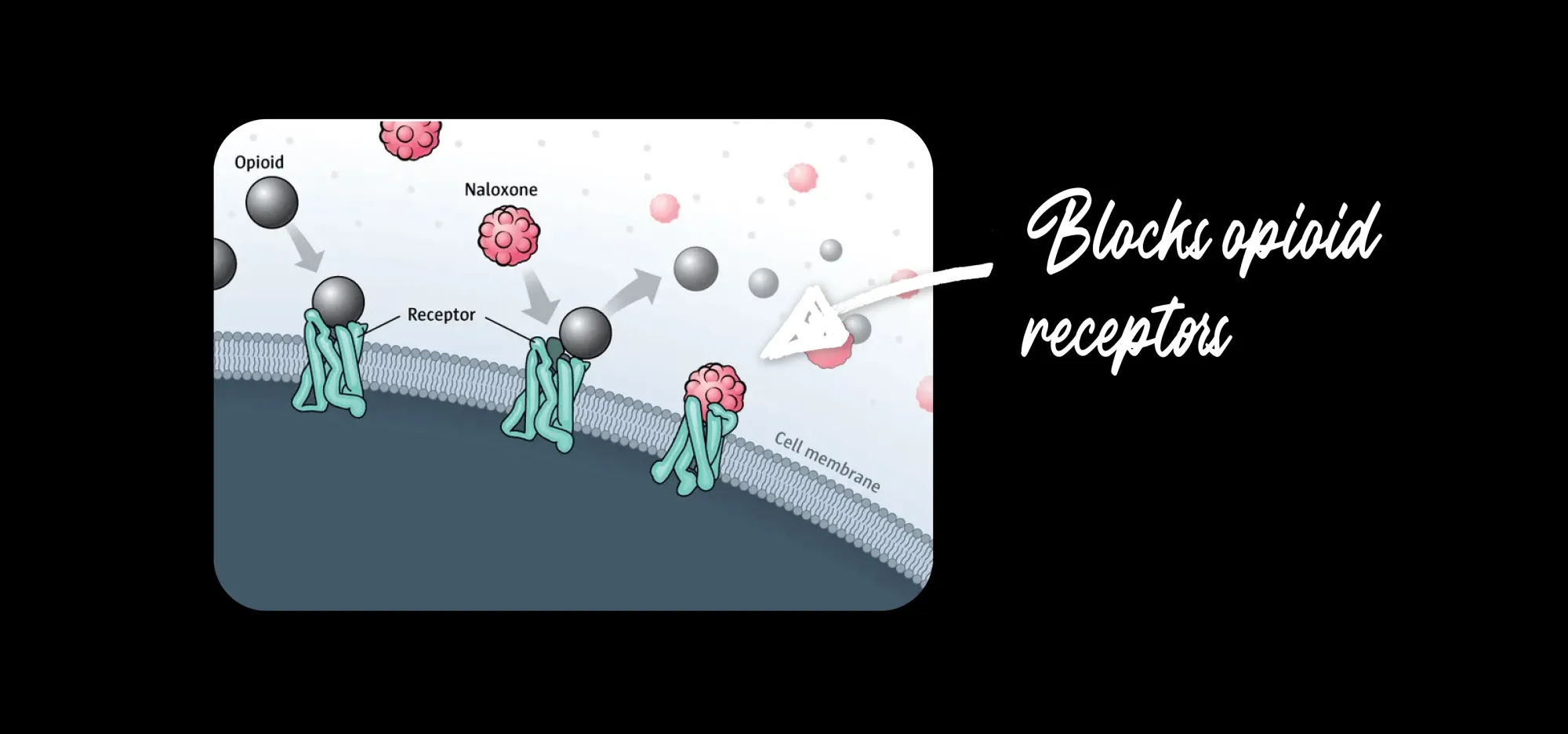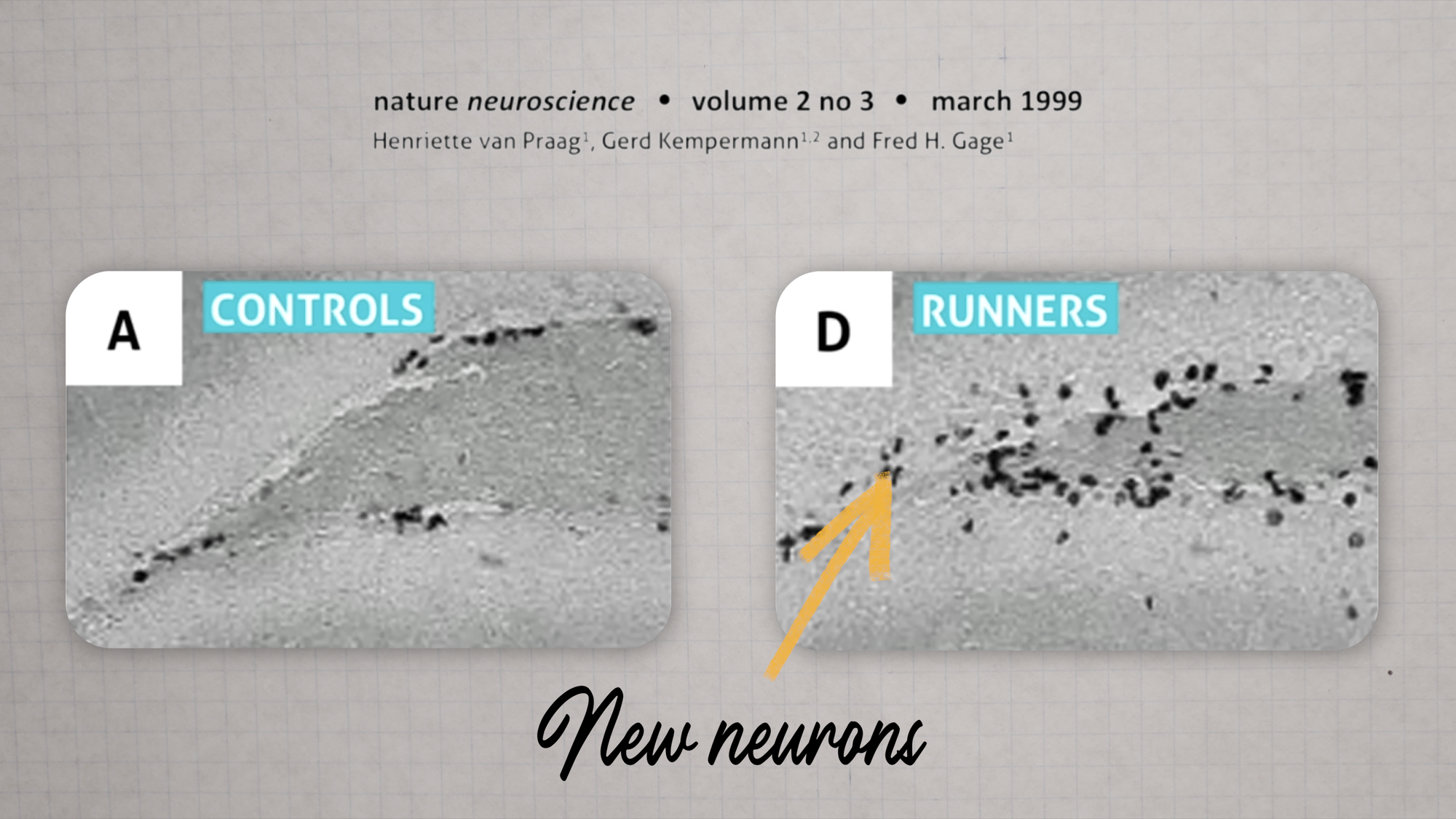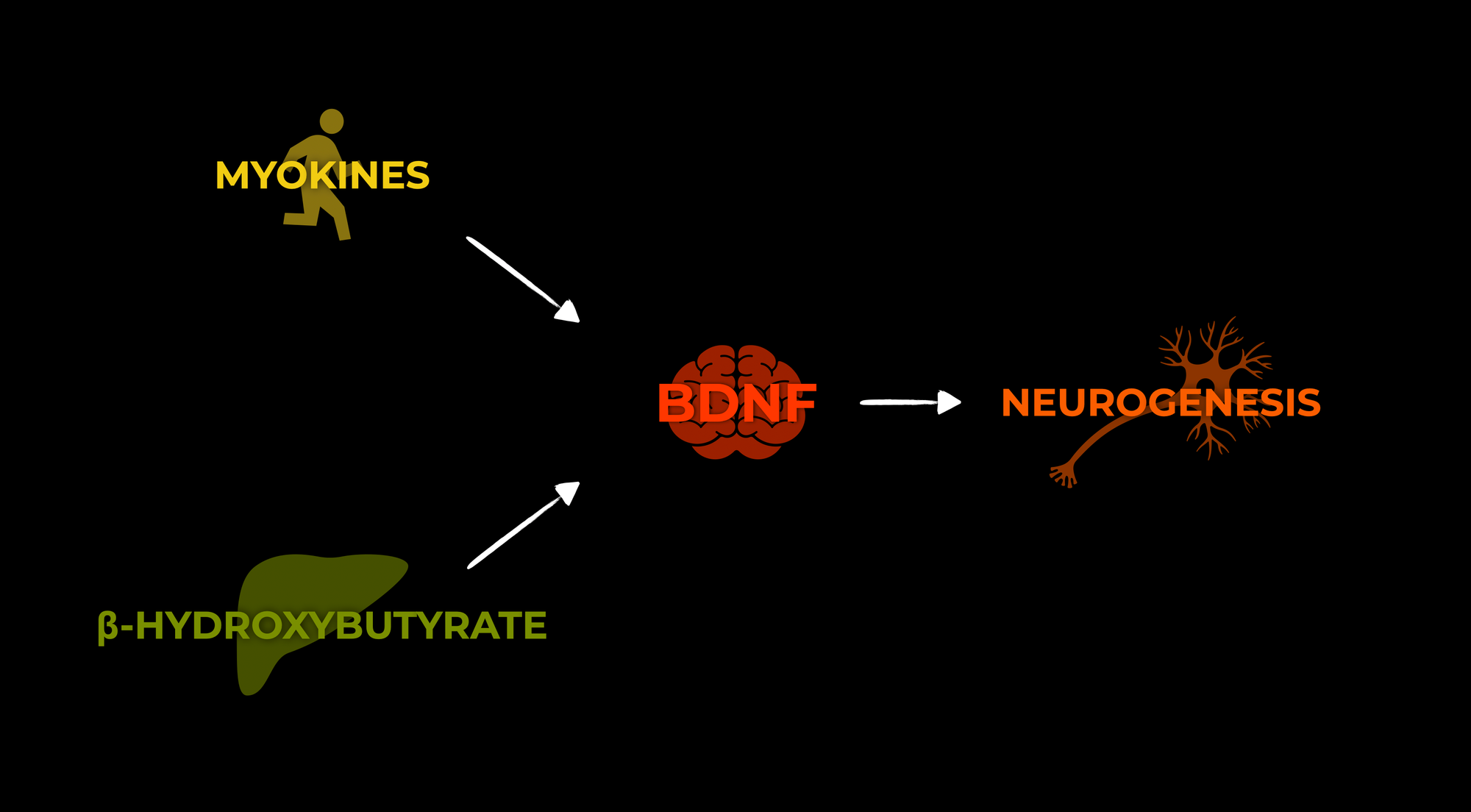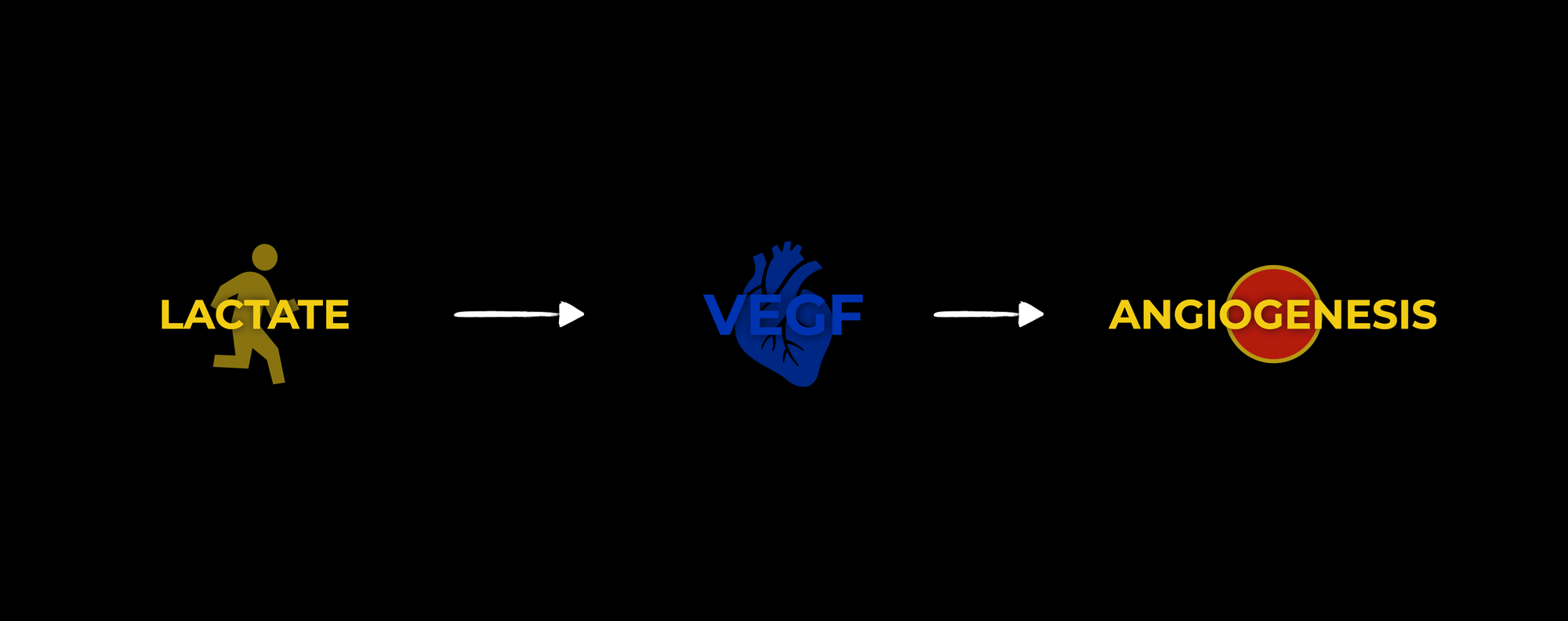When you start it's torture. It's easy to give up in that early phase, but if you understand all the benefits of running on your brain, it might keep you going. That's what I'll cover here.
I started writing this thinking I'd explore endorphins and their effect on the brain, but what I found was far more interesting. Here are a few interesting questions that arose from my research:
- Endorphins can't get into your brain, so why do you get runner's high then?
- Running can stimulate 90-year-olds to grow new brain cells, I thought brains stopped growing? How can running impact that?
- Can running improve my focus, learning and memory?
This article will be chronological from minutes to weeks to years following your run.
Minutes-Hours After: Runner's High
Runner's high is blissful but brief. It seems to be common knowledge that endorphins drive that feeling, but that's wrong.
It's Not Endorphins
Endorphins act through opioid receptors. Yes, they're the same receptors that heroin works on. They have the essential role of pain relief during exercise to allow us to keep pushing through. Just like the heroin high, it used to be thought that endorphins have that same effect.
Scientists at University Medical Center Hamburg-Eppendorf in Germany took 64 runners to test out that theory. They gave them naloxone, a drug we give in A&E to people with overdoses of heroin from dying. That naloxone blocks opioid receptors.

Interestingly, the runners still had that euphoric feeling and decreased anxiety levels. What causes the euphoria then?
Endocannabinoids
Endocannabinoids are remarkably similar to cannabis, but produced naturally by your body (your brain smokes a homemade spliff, basically). While endorphins can't get through the blood brain barrier because they're too big to fit through the door, endocannabinoids can move straight in.
Those same scientists measured the levels of endocannabinoids in the same 64 runners to show that their levels skyrocketed. This is now the working theory on why running gets you high.
Hours-Days After: Learning & Memory
Neurogenesis & Neuroplasticity
The hippocampus is responsible for regulating learning, encoding memories, consolidating memories, and regulating mood.
Every day, you grow 700 new neurones in your hippocampus. You may be thinking: 'there are billions of neurones in our brains, that's a tiny number!' You're right. But, it means that by the time you're 50 years old, every neuron in your hippocampus that you were born with, has been replaced with a new one.
That growth is mediated by one key growth factor: Brain derived neurotrophic factor (BDNF). This molecule is like Miracle Grow for the brain. It promotes generation of new neurons and encourages moulding of current neurons in a process we call neuroplasticity.
Running vs Sedentary Brain
This visual illustrates the difference between sedentary mice and marathon mice. The researchers show the impact of running on cell proliferation and neurogenesis in mice.

Signalling BDNF
When you run, you signal your body to release BDNF. That happens through two pathways:
- Muscle: Your muscles are also shooting off signals in the form of myokines to also signal that you're stressed and need more BDNF.
- Liver: When running, you're putting your body through stress. That causes a release of cortisol—your main stress hormone—but also another compound from the liver. It's a ketone called β-hydroxybutyrate. That travels up to your brain to signal release of BDNF.
So what does that BDNF actually do?

Effects of BDNF
BDNF signals to your hippocampus to generate new neurones. While sitting on the sofa, you're generating 700 neurones per day, but running will supercharge those numbers. What does that increase in neurons lead to? Improved ability to form and retain memories—i.e. improved learning.
For those struggling to focus, you'll be interested on its actions on the prefrontal cortex. Aerobic exercise been shown to increase ability to shift and focus attention.
Increasing BDNF in both the hippocampus and prefrontal cortex can also prevent or reverse stress-related mental illness.
Days-Years After: Preventing Cognitive Decline
I used to think that as you age, you produce less neurons and that's why you lose your memory and sharpness. I was wrong.
As you age, you continue to produce neurons right up into your 90s. New research is showing that it might actually be the blood supply to your brain that's the stem of the issues, not your brain cells.
Good news: Running impacts both.
Neurodegeneration
Our memories worsen over time because the supply of nutrients to the cells worsen. As you age, your blood vessels become stiffer and less able to supply the high demands of your brain.
The researchers found fewer blood vessels and connections between cells in the older brains. The older the individual, the less new blood vessels he or she forms.
Angiogenesis & Running
When you run, you're increasing the oxygen demand of your body. You compensate for that increasing oxygen demand increasing your supply through breathing more and increasing your heart rate.
In the long-term, your body wants to ensure you're ready if that happens again so it signals to grow new blood vessels to improve future supply. It's like roads in a city. There was too much traffic and it affected efficiency so it builds new smaller roads to improve flow.
It does that through vascular endothelial growth factor (VEGF). Lactic acid produced by your muscles when you train signals the release of VEGF and it then causes the production of new blood vessels in your brain.

In the short-term, the literature is fairly vague on its effects. Although it does mention 'improved cognition'. But in the long-term, it's clear that these new blood vessels pay dividends in preventing cognitive decline as you age.
Applying This Knowledge
How could this knowledge impact your daily life?
- When should I run? I plan to run before hard cognitive work like writing and researching. That way, I'm leveraging the cognitive enhancement of BDNF release in consolidating my learning and memories. These effects last up to 2 hours after exercise.
- How often? I want to make this sustainable. I won't be running every day because I simply don't like it enough. I train in the gym and enjoy that so I'll be sticking with that too! I'll be running 2-3 times per week.
- How long should I run for? Research shows that we may need around 30 minutes of relatively intense cardiovascular exercise to drive the endocannabinoid release, so I'll be making my runs around that length. Probably around 5-8 km distance.
- How intense? Zone-2 cardio is everywhere online, but it seems to be a good intensity level. What does that mean in English? A pace that you wouldn't be able to hold a conversation at, but not too intense that you feel like you're going to die.
- Is it just running? No. These effects are shown with other forms of aerobic exercise. Unfortunately, if you were hoping to get them from lifting weights, I have to let you down. But if you're interested, I can explore how lifting impacts the brain in a future article.
Stay Connected
I post new videos on YouTube every week. Please subscribe to support the videos, and I hope they can help you build healthy habits! If you aren't subscribed to the Healthy Habits Newsletter, consider joining to get actionable insights to help you live healthier.
Thank you for your time and interest,
Jack
